|
I’m so excited to see people starting to get back into some regular exercise routines since gyms are starting to reopen and the weather (at least in the northern hemisphere) is more cooperative (especially for open water swimming!). I know this is not EVERYONE’s situation, but it is starting to happen around the world. I certainly don’t want to get into a debate on whether or not gyms should be reopening, but whatever you believe, one thing is FOR SURE...we are not starting back up where we left off!!! Our body is in a different place now then it was pre-quarantine. And listen closely: THAT IS OKAY! It’s okay to have lost some momentum during this time. But PLEASE do not re-enter the gym, guns blazing, thinking you’re going to be able to lift or move in the same way you once did without injuring yourself. I know that can be a frustrating concept to take in but:
So instead of getting frustrating and feeling down on yourself about “everything you lost while in quarantine,” here are some tips to help you get back to regular movement safely: TIP #1 - Cut your workouts in half If you have had the ability to keep working out at the same capacity, then this may not apply to you. But since the majority of us lost access to equipment and spaces, we likely had to scale back a ton even if we did work out during lockdown. So, if you were swimming 3,000 yards before quarantine, consider swimming 1,500 yards the first few times you jump back into the pool. Again, I know you may want to just get right back to your old distances, weights, and reps but I promise if you start low you can build up, without injuring yourself, in no time! Plus, something tell me that half of a your old workouts is still more than your quarantine workouts so look at it as a step forward. If you are still concerned about getting in enough volume, try tip #2. Tip #2 - Split your workouts into 2 sessions. I realize that some people can’t logistically make this happen, but if you can, you should. Since you might not be used to the volume you were doing pre-COVID, allowing your body some reset time between sessions by splitting them up into 2 smaller sessions is wise. Instead of reinforcing bad form, which can develop when you get tired, allow some rest, maybe even eat a meal or two, and finish up your session later in the day when you are more fresh again. Then you get to say you’re doing 2-a-days ;-) Tip #3 - Add more rest between intervals.
This is another one that might be difficult to do for some of you. But rest is crucial, whether you have been consistent with your workout routine or not. If you were used to only resting 10-20 seconds between sets, consider doubling that for a few weeks. This will give the muscles a fighting chance of repeating your movement with good form. There is no sense in continuing a workout when your form is completely gone. This will just reinforce improper movement and greatly increase your risk of injury. Whether you’re going back to the gym or going outside for more frequent workouts, please keep these tips in mind. The last thing you need is to jump into something too aggressive only to find yourself back on the couch due to injury. We all want to get back to a normal workout routine, but let’s do it safely so that we can ensure long term physical health. If you’re looking to get back into a regular routine but are not sure where to start or are nervous that you may do it incorrectly, let’s chat! I offer training support alongside nutrition coaching so that you can find what works best for you and allow your body to thrive!
1 Comment
For many of us, stress and eating go hand in hand. Sure, there are the rare few who forget to eat when they get stressed out, but the majority of people tend to turn food during times of stress to help them feel more in control. Both situations, ‘stress eating’ and ‘stress starving’, are usually pretty undesirable. If you are a stress eater, you probably wish you were the type of person who forgot to eat when you are stressed out. But ask those folks how they feel about forgetting to eat when they’re stressed and they will tell you they hate it! Forgetting to eat throughout the day has its own consequences like blood sugar drops which inevitably leads to a poor mood (aka “hangry”). No one wants that. Not the person who's grouchy, and not anyone around them either. Eating, or not eating, during a stressful time is not always a bad thing. For example, when you eat certain foods, your body can release serotonin, the happy hormone, which can help you temporarily feel better. On the flip side, when you are stressed out, your digestive system is not functioning at optimal capacity, so skipping a meal isn’t horrible either. But in both cases, moderation is key. And the only way you are going to be able to moderate these behaviors is if the stress is reduced or eliminated. Well...easier said than done, especially over the last 3 months! 2020 seems to be turning into the year of chronic stress. If it’s not a global pandemic driving us into total seclusion, it’s unacceptable human behavior driving people into self reflection on their own behavior and that of those around them. For the last 3 months, people have been under non-stop stress to some degree or another and it’s taking a toll on our health. Since some of these stressors are out of our control, it’s time we looked at how we can use nutrition to mitigate the damage until we start to see some change. STRESS MANAGEMENT THROUGH NUTRITION I had the honor of being a guest on “A Little Dabble Do You” with Sara Cory and Heather Daenitz last week. Sara & Heather are sisters that have always been dabblers; pursuing whatever diversion tickles their fancy. They have an Instagram show called A Little Dabble Do You, where they encourage their followers to pursue their interests by sharing their own with love and enthusiasm. In every episode, they give you tips on how to get started with whatever they’re discussing, which in my case, was stress management through nutrition. And since we can ALL use a little help in that department, today I want to share those tips with you! TIP #1 ADD UNREFINED SEA SALT TO YOUR WATER When your body is under stress, your body will divert most available nutrients to the production of cortisol, our body’s main stress management hormone. Without getting TOO deep into the biology, cortisol shares a pathway with a hormone called aldosterone. Aldosterone controls our sodium balance in the kidneys. When we are stressed, aldosterone is depleted in order for cortisol to be produced. This can leave you craving french fries and potato chips, when really what your body is trying to tell you is it needs more sodium. Instead of spending your day eating deep fried salty treats (which is okay SOMETIMES), try adding a small pinch of unrefined sea salt to your water instead. A small pinch can go a long way! You shouldn’t feel like you’re tasting the ocean! Speaking of cravings and nutrient depletion, did you download my FREE food cravings chart! It’ll help you understand what your body is REALLY asking for so you can start filling up on real food and possibly stop the cravings all together! TIP #2 - PRIORITIZE YOUR SLEEP! During things like global pandemics or even just everyday life, stress is non-stop. From the moment you open your eyes, until you go to bed, you are worried, busy, multitasking, planning, changing plans and just non-stop go, go, go. That means that sleep is the only time we give our bodies to restore...and boy do we need it! Think of sleep as putting money into your bank account, while being awake and on the go is taking money out. You need to stay in a positive balance or else you’ll start to run into problems. To help you with this, here are 2 things you can start doing immediately:
TIP #3 - ELIMINATE ANY KNOWN FOOD INTOLERANCES, ALONG WITH GLUTEN AND DAIRY. As I mentioned earlier, your digestive system doesn’t work so great when you are stressed. We need to move out of our “fight or flight” nervous system and into our “rest and digest” nervous system to properly digest our foods. Since this can be a challenge for some people to manage during times like these, you can work hard to avoid the foods that we know are harder to digest. Both gluten and dairy are very long proteins in our food system. In order to digest them completely, we need our digestive system to be on it’s “A” game, and that is certainly not during times of stress. So whether you have a gluten or dairy intolerance or not, it’s wise to limit or completely avoid these foods when you’re stressed out. TIP #4 - AVOID “NAKED” FOODS AND PRIORITIZE NUTRIENT DENSE FOODS. “Naked” foods are foods that have been highly processed and are void of their natural micronutrients. These foods can fill you up, but oftentimes leave your body craving more foods. Why? Because your body needs those micronutrients in order to stay healthy. So if you find yourself craving all sorts of foods in times of stress, it’s probably because you’re deficient in certain micronutrients. Luckily, I have a FREE FOOD CRAVINGS CHART available for download where you can see which nutrients you likely need when you are craving certain foods. Generally speaking, eating lots of colorful fruits and vegetables, healthy wild or pasture raised proteins whenever possible, and using natural fats from things like avocados, coconuts, nuts and seeds can all help you fill your body with the micronutrients you need to be healthy! DARK CHERRY FROZEN YOGURT RECIPE The recipe below can help you with Tips #2,3, & 4! Plus, it’s delicious which means you’ll enjoy a hit of endorphins to help your body feel good! INGREDIENTS
DIRECTIONS
TIPS
Did you know that a food craving can be a sign that you might have a nutrient deficiency? Yes ladies, that chocolate craving around your period can really be a sign of a magnesium deficiency. Or the desire to chew ice can indicate an iron deficiency. The body is a very intuitive machine and the feedback loop between your body and the brain is strong. If the brain perceives a deficiency, it is not uncommon to see a food craving that might be high in that nutrient. Chocolate is one the richest sources of food based magnesium and it is not uncommon for clients to notice a significant drop in their chocolate cravings when they increase their intake of magnesium (either through magnesium rich foods or a supplement). There is no doubt that food cravings can come from other factors as well, such as cultural factors, stressful environments and hormonal fluctuations. But if you suspect you’re not getting cultural or social pressures to eat specific foods, that you are managing your stress well, and your hormones are balanced, maybe it’s time to start feeding your craving with real foods. Cultural and social pressures to eat Do any of the bribes below sound familiar? “If you eat all of your dinner, you’ll get dessert.” “If you get straight “A’s” we’ll go out for ice cream.” “If I exercise for an extra 20 minutes, I can have that glass of wine.” We’ve all heard them - or something similar - and even used them with our children and ourselves! They seem innocent or well-intended but the reality is they create a feedback loop that leaves food as the reward. So regardless of if we are actually WANTING something, we feel compelled to have it because we “deserve it.” If you have seen any of the work done by Gretchen Rubin, James Clear or Brendan Burchard on creating better habits, then you know that the reward is a VERY important part of creating a new habit, or good behavior. So, yes, a reward can help you create new habits. However, rewards do not have to be food! When is the last time you allowed yourself to relax for an extra 30 minutes? Or take that yoga class that you’ve been meaning to take? Or go to bed earlier? There are so many ways to shower ourselves with rewards that don’t involve food! If you can find ways to replace your food based reward with a non-food based reward, you might just notice your food cravings go away after a while. Why we crave foods when we’re stressed Our body is controlled by hormones, little chemical messengers that communicate between tissues. One of those hormones is cortisol. Among it’s plethora of roles, cortisol releases stored sugar from the liver so you can fight or flee. When this sugar is released, it is not uncommon for people to experience sugar cravings. This is because the brain wants to refill those sugar storage cells so if you have to fight or flee again soon, you will be ready! If you are noticing mostly sugar cravings, you might want to do an honest assessment of your stress levels. Remember that stress doesn’t just come from fighting with your spouse, or your mean boss at work, or financial trouble. It can also come from dehydration, or lack of restorative sleep and even from eating foods your body is sensitive to. Why we crave foods when our hormones are fluctuating Two of the most common monthly hormone fluctuations for women are between estrogen and progesterone. In the early phases of a woman's monthly cycle, estrogen surges. Estrogen is an appetite suppressant. Once ovulation occurs and we enter the second phase of our monthly cycle, estrogen drops and progesterone surges. Progesterone is an appetite stimulant. This is an evolutionary response because if you get pregnant, your body wants to make sure you are eating enough calories to sustain your pregnancy. So it is not uncommon to notice stronger food cravings, especially for sugar and/or salt, during the second phase of your cycle. If you are not trying to get pregnant, this can be a struggle. For some women, just knowing that this will happen during the later phases of their monthly cycle can help them fight the stronger urge to eat more food. If just knowing this is what is happening doesn’t help you, try increasing your protein and fiber intake during the 3rd and 4th weeks of your cycle. Protein and fiber are slower to digest and can help you feel satiated for longer. Why we crave foods when our digestive system isn’t functioning well The entire point of eating food is to obtain the nutrients it contains. In order to absorb those nutrients for our body to use, we have to first be able to digest them down into an absorbable form. Our muscles aren’t made from chicken, they’re made from the individual amino acids that chicken contains. When we eat chicken, we digest it down into the individual amino acids that make it, then we can absorb them. If your digestion isn’t functioning well, it is not uncommon to partially absorb foods, and therefore miss out on some of the nutrients those foods contain. When that happens, you might start seeing food cravings. In this case, you need to work on optimizing your digestion. Start by making sure you are chewing your food well. The physical act of chewing starts the mechanical breakdown of our foods into the individual nutrients that make it up. If you already know you are taking your time and chewing your food well, but still experiencing digestive problems (gas, bloating, heartburn, undigested food in your stool and diarrhea are all signs of poor digestion), it might be worth trying to add a digestive enzyme complex to your meals to see if it helps. One of my favorite digestive enzymes is Pure Encapsulation Digestive Enzymes Ultra, which contains a mixture of vegetarian enzymes developed to promote optimal nutrient bio-availability and absorption. Food cravings due to nutrient deficiencies If all of the above scenarios don’t seem to apply to you, or you are just interested in learning more about which nutrient deficiencies lead to which food cravings then you, my friend, are in luck!
I’m sharing with you a list of the most common food cravings and what nutrients you might really be deficient in that you can download here: FREE FOOD CRAVINGS CHART. The point here, is that you work towards increasing your intake of nutrient dense foods that contain these nutrients rather than succumbing to unhealthy cravings! Post it on your fridge at home, or anywhere that you will see it, and work to increase those foods that provide specific nutrients for a few weeks. Who knows, you might just see your food cravings go away! If you’re interested in learning more about how to heal your digestion and squash your cravings, you can schedule a free discovery call by clicking HERE. |
AuthorTiana Rockwell is a certified nutritional therapist, avid endurance athlete and dark chocolate lover. She believes that by eating REAL food, we can balance our body and reach optimal health and wellness! Archives
May 2022
Categories
All
|





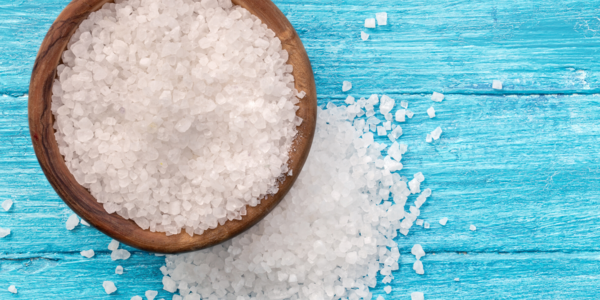

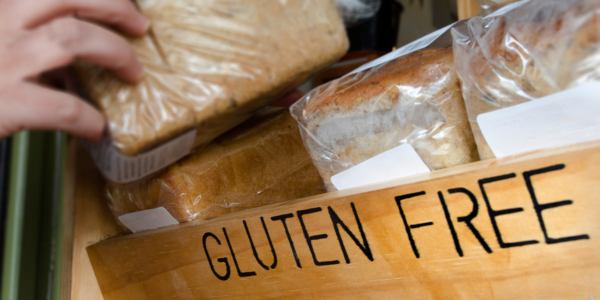
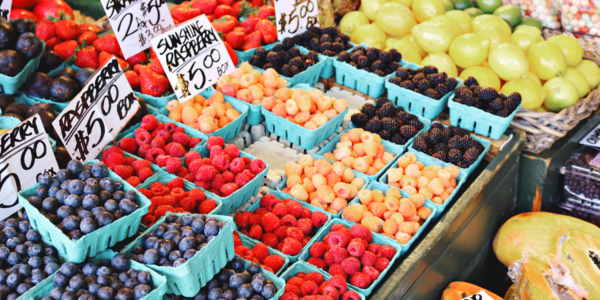
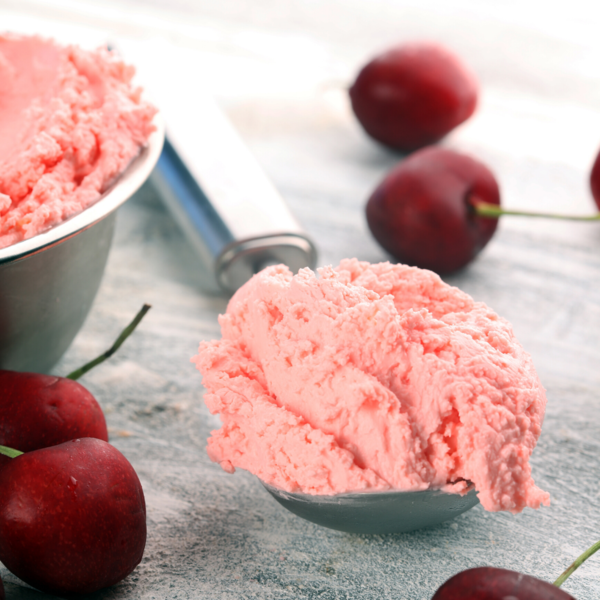





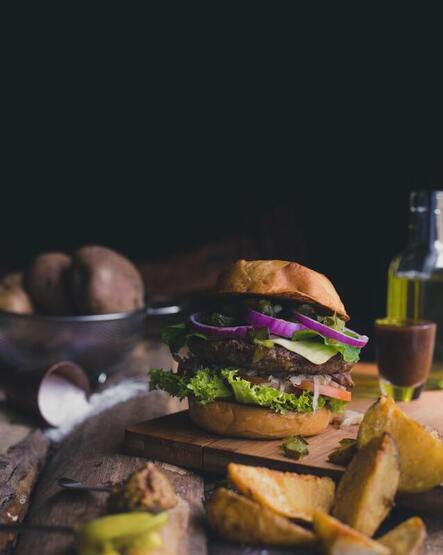

 RSS Feed
RSS Feed